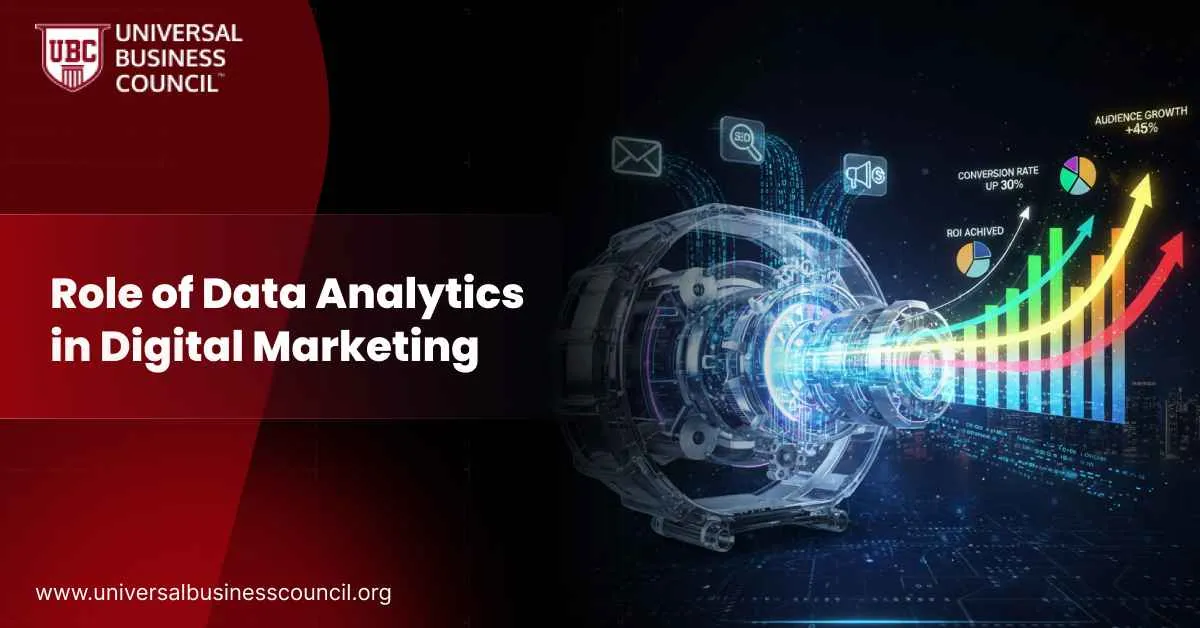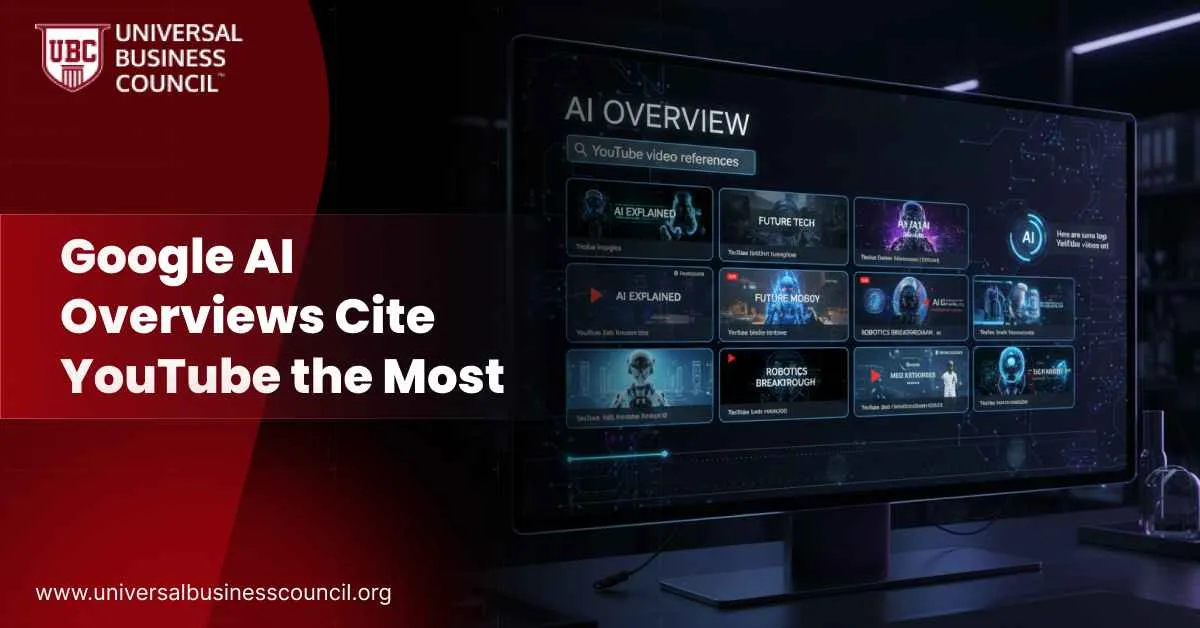 Data analytics has become the foundation of every successful digital marketing strategy. In 2025, it is no longer optional for marketers to rely on data — it is essential for understanding audiences, optimizing performance, and achieving measurable results.
From social media insights to predictive modeling, analytics helps marketers make smarter decisions instead of relying on guesswork. Whether you’re an entry-level marketer or a senior strategist, learning how to interpret data is now a must-have skill. Enrolling in an AI Powered Digital Marketing Course is an excellent first step to mastering the art and science of data-driven marketing.
Data analytics has become the foundation of every successful digital marketing strategy. In 2025, it is no longer optional for marketers to rely on data — it is essential for understanding audiences, optimizing performance, and achieving measurable results.
From social media insights to predictive modeling, analytics helps marketers make smarter decisions instead of relying on guesswork. Whether you’re an entry-level marketer or a senior strategist, learning how to interpret data is now a must-have skill. Enrolling in an AI Powered Digital Marketing Course is an excellent first step to mastering the art and science of data-driven marketing.
What Does Data Analytics Mean in Digital Marketing?
Data analytics in digital marketing refers to the process of collecting, interpreting, and acting on data from various digital sources — websites, social media, emails, and ads — to improve marketing outcomes.
Every click, scroll, or conversion leaves behind a trail of information. Analytics tools translate that data into meaningful insights. These insights tell marketers what’s working, what’s not, and how to enhance future campaigns.
With advancements in AI and automation, analytics platforms can now predict user behavior, personalize customer experiences, and even optimize campaigns in real time. To understand these technical underpinnings better, the Deep Tech Certification
from Blockchain Council offers a strong foundation in AI, automation, and data systems that drive modern marketing ecosystems.
Types of Analytics Used in Digital Marketing
Digital marketing analytics is often divided into four main categories, each serving a different purpose.
1. Descriptive Analytics
This type answers the question: What happened?
It summarizes past performance by analyzing metrics like website traffic, engagement rates, and conversions. Google Analytics and Meta Insights are common tools for descriptive analytics.
2. Diagnostic Analytics
This answers: Why did it happen?
By diving deeper into the data, marketers can identify reasons for success or failure. For instance, if a campaign’s engagement dropped, diagnostic analytics might reveal that audience targeting or timing caused it.
3. Predictive Analytics
Predictive analytics uses machine learning models to forecast future outcomes. It helps marketers anticipate trends such as which products customers are likely to buy or when they might churn.
4. Prescriptive Analytics
This type suggests actions based on data insights. It’s the most advanced form and relies heavily on AI. For example, a prescriptive model can recommend which ad creative or audience segment will deliver the best ROI.
Marketers who want to gain hands-on expertise in these analytical models can explore the Tech Certification
from Global Tech Council, which focuses on real-world applications of analytics and AI tools in marketing.
How Data Analytics Improves Marketing Strategy
Analytics transforms decision-making from reactive to proactive. Instead of relying on intuition, marketers use data to guide every move.
1. Audience Insights and Segmentation
Analytics helps marketers understand who their customers are — demographics, interests, and online behaviors. This enables precise audience segmentation and better targeting for ads and content.
2. Campaign Optimization
By analyzing performance data, marketers can adjust ad spending, messaging, and timing to maximize efficiency. Tools like Google Ads Manager and Meta Business Suite automate much of this process.
3. Customer Journey Mapping
Analytics tracks the customer’s journey from awareness to purchase. Understanding which touchpoints influence conversion helps marketers streamline the funnel and improve retention.
4. Performance Measurement
Every campaign is only as good as its results. Analytics provides metrics like ROI, conversion rate, cost per click (CPC), and engagement rate — all essential for evaluating effectiveness.
5. Personalization
Using analytics, marketers can deliver personalized experiences based on user data. AI models recommend content, products, or offers that match each individual’s interests, increasing engagement and sales.
Tools and Technologies Powering Modern Marketing Analytics
Modern analytics relies on both established tools and cutting-edge technologies.
1. Core Analytics Platforms
- Google Analytics 4 (GA4): Tracks cross-platform behavior and conversions.
- Adobe Analytics: Used for advanced segmentation and visualization.
- HubSpot Analytics: Integrates CRM data for unified marketing performance.
2. Data Visualization and Business Intelligence (BI) Tools
- Looker Studio (formerly Data Studio): Builds real-time dashboards.
- Tableau and Power BI: Offer interactive visuals for better decision-making.
3. AI-Powered Platforms
- ChatGPT Analytics Plugins, Jasper AI, and HubSpot AI: Simplify predictive modeling and customer segmentation.
- Automation Tools: Platforms like Zapier and Salesforce automate reporting, saving time.
Marketers who wish to integrate these technologies into broader digital strategies can upskill through the Marketing and Business Certification
from Universal Business Council, which focuses on data-driven marketing and strategic management.
Data and Governance Challenges Marketers Must Address
While analytics offers enormous potential, it also presents challenges related to data quality, governance, and privacy.
1. Data Quality
Poor or inconsistent data can lead to incorrect insights. Marketers must ensure accurate tracking, clean databases, and standardized reporting practices.
2. Privacy and Compliance
With GDPR and CCPA regulations, brands must prioritize consent-based data collection. Transparency builds trust and ensures compliance.
3. Integration Across Channels
Marketers often collect data from multiple platforms — websites, ads, and CRMs — making integration complex. Data silos can lead to fragmented insights.
4. Attribution Challenges
Understanding which channels truly drive conversions is difficult. Multi-touch attribution models can help, but they require advanced data pipelines.
5. Skill Gap
Many marketers still struggle to interpret complex analytics reports. Continuous learning and training are essential to fully leverage data-driven marketing.
Key Trends in Marketing Analytics for 2025 and Beyond
The analytics landscape is evolving rapidly, with emerging technologies reshaping how marketers approach data.
1. AI-Augmented Analytics
AI now assists marketers by automating insights. Instead of manually analyzing spreadsheets, AI tools surface trends and anomalies instantly.
2. Real-Time Data Insights
Marketers no longer wait weeks for reports. Real-time dashboards allow immediate optimization during campaigns, improving agility and results.
3. Cross-Channel Attribution
New tools provide a holistic view of how different marketing channels interact. This ensures smarter allocation of advertising budgets.
4. Predictive and Prescriptive Modeling
Advanced analytics is shifting from “what happened” to “what will happen” and “what to do next.” Predictive models identify potential customers, while prescriptive analytics suggests the best actions to take.
5. Focus on First-Party Data
With the decline of third-party cookies, brands are collecting more first-party data through newsletters, loyalty programs, and direct interactions. This strengthens long-term customer relationships.
6. Data Democratization
Companies are giving more employees access to analytics dashboards, enabling faster decision-making and a more data-literate workforce.
Skills Marketers Need to Succeed with Analytics
Analytics is only valuable when marketers know how to interpret and act on it. Here are key skills required in 2025:
1. Data Literacy
Marketers must understand core metrics, statistical reasoning, and how to identify data anomalies.
2. Tool Proficiency
Proficiency in Google Analytics, Looker Studio, Tableau, and CRM tools is crucial.
3. Understanding AI and Automation
Since analytics and AI are intertwined, marketers should know how AI models process and predict outcomes.
4. Critical Thinking
The ability to question assumptions and interpret insights in context is what separates good analysts from great ones.
5. Storytelling with Data
Translating complex analytics into compelling business narratives is an essential leadership skill.
To gain structured training in these areas, professionals can consider the Tech Certification
from Global Tech Council, which bridges technical and analytical skills for marketing success.
Benefits of Data Analytics in Digital Marketing
- Improved ROI: Data helps allocate resources to the highest-performing channels.
- Customer Retention: Predictive analytics identifies churn risks early.
- Better Decision-Making: Data-backed strategies reduce guesswork.
- Enhanced Personalization: Analytics supports individualized experiences across touchpoints.
- Optimized Content Strategy: Data reveals what type of content resonates most.
- Increased Transparency: Data builds trust internally and externally through measurable results.
Why is data analytics important for digital marketers?
Because it transforms raw data into actionable insights, helping marketers optimize campaigns, target audiences precisely, and measure ROI effectively.
Which metrics should I track?
Focus on conversion rate, customer acquisition cost, click-through rate, engagement, and lifetime value. These indicate performance quality across channels.
Can small businesses use data analytics?
Absolutely. Tools like Google Analytics and HubSpot provide free solutions that deliver valuable insights without large investments.
What’s the difference between AI analytics and traditional analytics?
Traditional analytics relies on human interpretation, while AI analytics uses algorithms to predict outcomes, personalize experiences, and automate optimization.
Is learning analytics difficult for beginners?
No. With structured learning programs like the AI Powered Digital Marketing Program, anyone can develop strong analytical thinking and tool proficiency.
Conclusion
Data analytics has revolutionized how marketing works. It empowers brands to make decisions based on facts, not assumptions. As AI and automation continue to evolve, the ability to interpret and apply data insights will define the next generation of successful marketers.
For those ready to future-proof their careers, the AI Digital Marketing Course builds the foundation for data-driven marketing. Learners who want to dive deeper into the technical side of analytics can explore the Deep Tech Certification from Blockchain Council, while professionals focusing on advanced analytical applications can gain valuable skills through the Tech Certification from Global Tech Council. Strategic thinkers aiming to lead marketing teams can strengthen their expertise with the Marketing and Business Certification from Universal Business Council.
By embracing analytics, marketers not only understand what drives success but also shape the future of digital engagement — one data point at a time.
 Data analytics has become the foundation of every successful digital marketing strategy. In 2025, it is no longer optional for marketers to rely on data — it is essential for understanding audiences, optimizing performance, and achieving measurable results.
From social media insights to predictive modeling, analytics helps marketers make smarter decisions instead of relying on guesswork. Whether you’re an entry-level marketer or a senior strategist, learning how to interpret data is now a must-have skill. Enrolling in an AI Powered Digital Marketing Course is an excellent first step to mastering the art and science of data-driven marketing.
Data analytics has become the foundation of every successful digital marketing strategy. In 2025, it is no longer optional for marketers to rely on data — it is essential for understanding audiences, optimizing performance, and achieving measurable results.
From social media insights to predictive modeling, analytics helps marketers make smarter decisions instead of relying on guesswork. Whether you’re an entry-level marketer or a senior strategist, learning how to interpret data is now a must-have skill. Enrolling in an AI Powered Digital Marketing Course is an excellent first step to mastering the art and science of data-driven marketing.




Leave a Reply